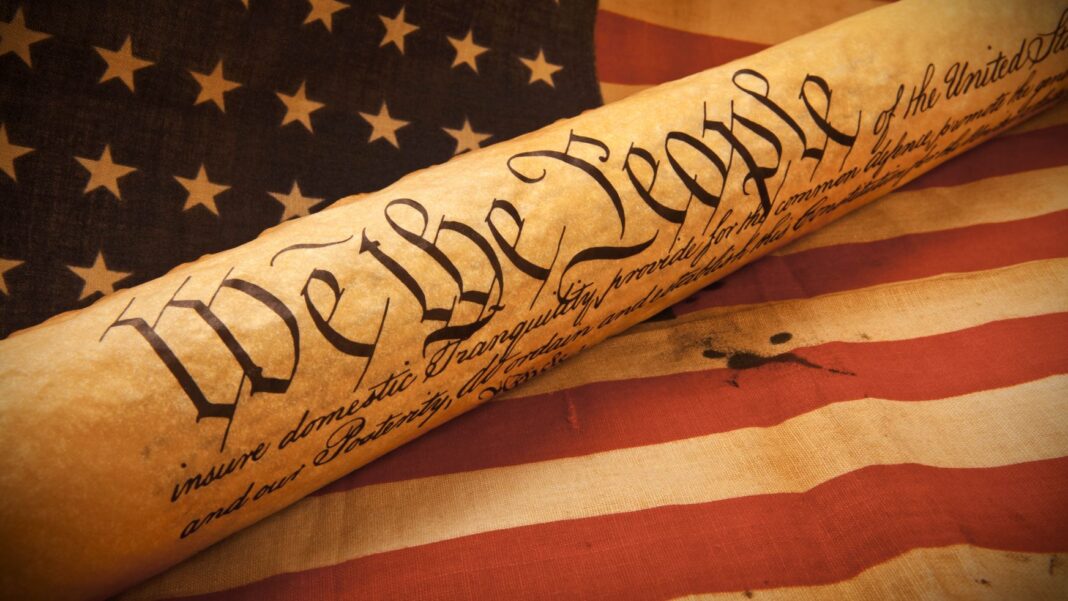Some schools are teaching children that the formation of the American Union, and specifically the Constitution, were influenced heavily by the pre-existing federation of the Iroquois Indians. There are many websites making the same claim.
As someone with native ancestry, I’d be glad if it were true. But it’s demonstrably false. Parents who find out that their children are being fed this misinformation should insist that it be stopped. Parents may provide school administrators with this essay for support.
The Iroquois Great Law of Peace
The Iroquois were based in New York State. They consisted initially of five groups. The Europeans and American colonists called these groups “tribes,” “cantons,” or “nations.”
The “Great Law of Peace” was the constitution of the Iroquois Confederation (pdf). It may have been adopted as early as the 12th century or as late as the 17th. In either case, it was older than the United States. In 1722, the Tuscarora people joined the confederation, thereby expanding it from five tribes to six. During the American Founding Era, the Iroquois Confederation was often referred to as the Six Nations.
The Great Law and the Iroquois Confederation were outstanding achievements, worthy of historical recognition and study. As we shall see, however, they didn’t have an appreciable influence on the American Union or on the Constitution.
Was Benjamin Franklin Influenced?
Those who assert that the Iroquois Confederation influenced the Constitution rely heavily on the career of Benjamin Franklin. They note that Franklin’s printing company reproduced a 1744 speech by an Iroquois leader urging union among the American colonies. They also point to a 1751 letter from Franklin stating that if the Iroquois could unite, the colonies could, too. They say that Franklin “referenced” the Iroquois Confederation when proposing his own “Plan of Union” at an inter-colonial convention in 1754.
In fact, however, none of those events suggest that Franklin considered the Iroquois Confederation to be a model for an American constitution. Here’s why:
First, Franklin’s print shop reproduced the 1744 “unity speech” only because it was printing a volume collecting 13 negotiations leading to Indian treaties, and the speech happened to be in the records for one of the 13. The speech occupied only 10 lines in the 450-page volume.
Franklin’s 1751 letter mentioned unity, but contained no discussion of the institutions of the Iroquois or whether the colonies might copy them.
The 1754 document apparently was not even written by Franklin, but by Thomas Hutchinson. Hutchinson played no role in the crafting of the American Constitution; he was a Tory who fled to England during the Revolution. Moreover, the document touched mostly on colonial-Indian relations, not on the Iroquois form of government.
Even if these events were reliable indices of Franklin’s personal opinions, they would tell us little about influences on the other 54 framers decades later. They would tell us still less about the views of the 1648 state convention delegates who ratified the Constitution or of the public who elected those delegates.
By Rob Natelson







